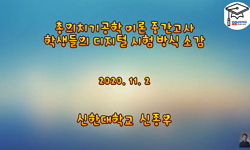The purpose of this study was to examine the relationships among infectious disease risk perception, leisure attitude, life stress, and life satisfaction of university students with COVID-19. First, the result showed that psychological risk perception...
http://chineseinput.net/에서 pinyin(병음)방식으로 중국어를 변환할 수 있습니다.
변환된 중국어를 복사하여 사용하시면 됩니다.
- 中文 을 입력하시려면 zhongwen을 입력하시고 space를누르시면됩니다.
- 北京 을 입력하시려면 beijing을 입력하시고 space를 누르시면 됩니다.

대학생의 감염병 위험인식, 여가태도, 생활스트레스, 생활만족도 간의 관계 연구 = The Relationships of University Students’ Risk Perception to Infectious Disease, Leisure Attitude, Life Stress, and Life Satisfaction
한글로보기https://www.riss.kr/link?id=A108622642
- 저자
- 발행기관
- 학술지명
- 권호사항
-
발행연도
2023
-
작성언어
-
- 주제어
-
KDC
300
-
등재정보
KCI등재
-
자료형태
학술저널
- 발행기관 URL
-
수록면
79-98(20쪽)
- 제공처
-
0
상세조회 -
0
다운로드
부가정보
다국어 초록 (Multilingual Abstract)
The purpose of this study was to examine the relationships among infectious disease risk perception, leisure attitude, life stress, and life satisfaction of university students with COVID-19. First, the result showed that psychological risk perception was found to have a positive effect on affective attitude, while social risk perception did not have a significant effect on affective attitude. On the other hand, there was no significant relationship between conative attitude and risk perception of infectious diseases. Second, both psychological risk perception and social risk perception were found to have a positive effect on life stress. Third, it was found that life stress had a positive effect on affective attitude, while it had a negative effect on conative attitude. Fourth, both affective and conative attitudes had a positive effect on life satisfaction. Fifth, life stress had a negative influence on life satisfaction. This study can be used as a basis for understanding the leisure behavior of university students in the event of a recurrence of a pandemic in the future.
동일학술지(권/호) 다른 논문
-
친환경 드론 음식배달 서비스의 인지적 자극 요인 추출에 관한 연구
- (사)한국마이스관광학회
- 황진수 ( Hwang Jinsoo )
- 2023
- KCI등재
-
객실승무원의 직무영성(SW)을 이루는 요인이 직무몰입에 미치는 영향 :직무만족의 매개효과
- (사)한국마이스관광학회
- 김지혜 ( Kim Ji-hye )
- 2023
- KCI등재
-
- (사)한국마이스관광학회
- 문준호 ( Moon Joonho )
- 2023
- KCI등재
-
가정간편식 소비자를 중심으로 한 친환경 방송 홈쇼핑의 녹색 이미지에 관한 연구
- (사)한국마이스관광학회
- 이인혜 ( Lee In-hye )
- 2023
- KCI등재




 KCI
KCI KISS
KISS






